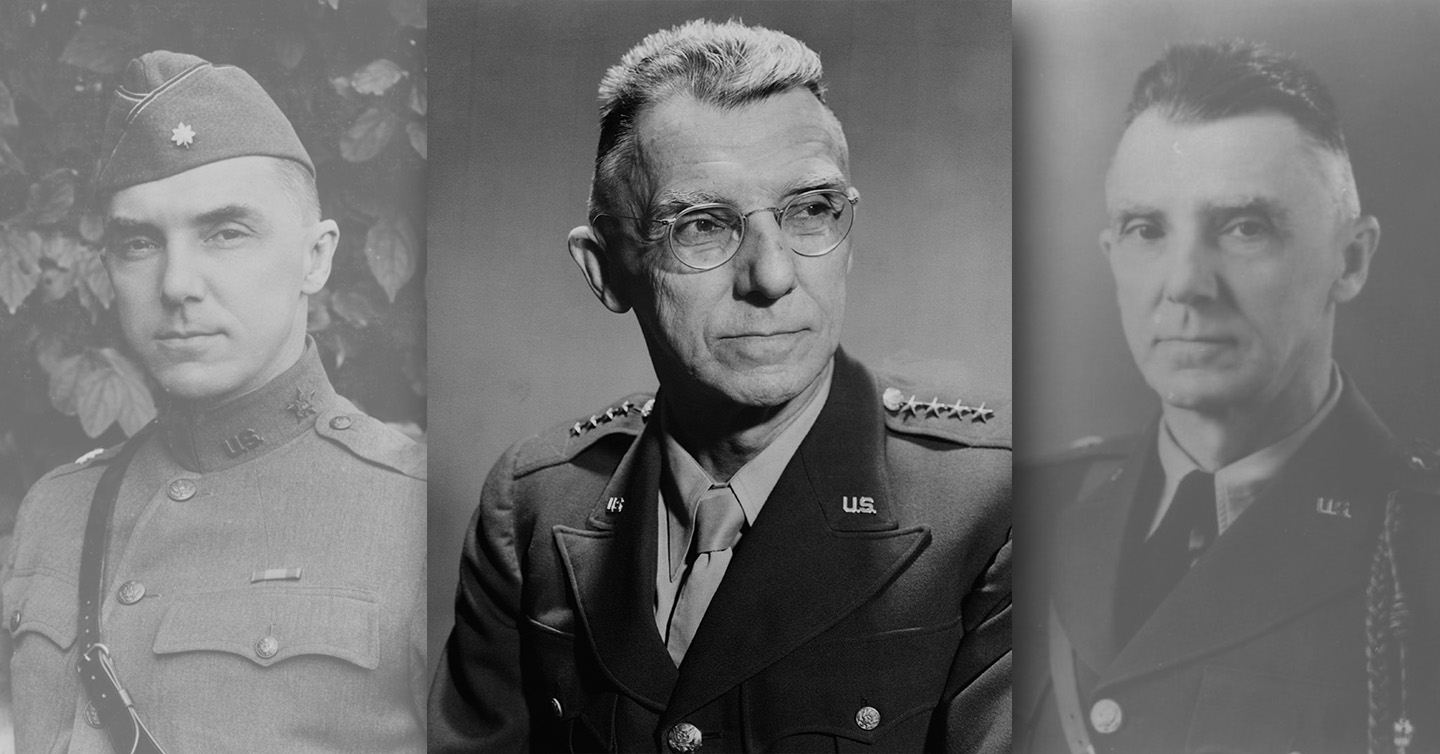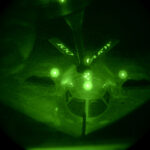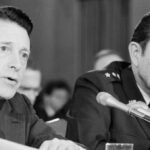
The Army needs officers with experience working in foreign countries where the situation is complex and ambiguous
Training foreign armies to do the work we would otherwise have to do ourselves seems like a great idea. Known in the U.S. Army as security force assistance (SFA), it is less politically and financially costly than using American troops. The theory of SFA is that the United States can create a friendly Army to help pursue mutual security goals with a small number of advisors and enough aid. In practice, the U.S. military has failed to realize the promise of SFA in Iraq and Afghanistan, and many wonder whether SFA works. From personal experience, which includes training Iraqi soldiers, I have encountered deep skepticism amongst Army officers as to whether we can get foreign partners to do the job well. The prevailing attitude seems to be some version of, “If you want something done right, do it yourself.” Yet before the U.S. military writes off SFA, we should ask ourselves whether perhaps we are part of the problem. Anyone with even a cursory knowledge of military history knows that many militaries, including America’s, have effectively trained and led foreign forces. One of the sources of past successes was the leadership of officers with the right skills and experience.
The United States has used SFA extensively since World War II. General James Van Fleet (U.S. Army, 1915-1953) supervised two enormously successful security force assistance efforts, first in Greece, where he led the fight to defeat communist insurgents, and later during the Korean War, where he instituted a program to train the South Korean Army. In a 1954 article for Reader’s Digest called “25 Divisions for the Cost of One,” Van Fleet argued that the value of supporting allied forces was rooted in their relative cheapness:
We drag along his home-town drugstore, with its candy bars, cigarettes, toilet articles. Every division must have its ice-cream plant. It is lavishly supplied… The South Korean ration costs only 40 cents a day because it is mostly rice, with local vegetables for vitamins, and meat hardly twice a week. In clothing, a Korean soldier considers himself lucky to get two cheap, homemade uniforms a year while we often allow the GI a new outfit (far more expensive) every 90 days. In pay, the lowliest combat GI gets $136.20 a month, while the Korean considers himself fortunate to get 15 cents. When his outfit is on the move, the GI expects to be hauled in a truck, while a Korean assumes he will walk as he has done all his life.
The situation remains fundamentally the same today. American soldiers are awfully expensive compared to nearly all foreign security forces. With the right approach to investment, we can still create 25 foreign divisions for the price of one American division.
However, security force assistance is not easy. Simply sending money and advisors to a country does not guarantee a well-trained, loyal foreign military, as our painful experiences in Afghanistan and Iraq make clear – this, despite enormous investment. Indeed, recent U.S. SFA efforts have been unsuccessful.
One problem has been the Army’s failure to develop the right type of officer to manage SFA. Always unique and complex, situations where American advisors train and assist foreign security forces (FSFs) require broadened officers who are innovative, politically savvy, and, most importantly, experts in tactical operations. The U.S. Army does not typically produce such well-rounded individuals. There are plenty of brilliant officers, but not many with this mix of attributes.
This was not always the case. In 1920, the Army recruited combat arms officers to be part of the “Military Intelligence Division,” the predecessor to the modern FAO (Foreign Area Officer) program. Those selected received language training before relocating to a foreign country for two to three years. The Army wanted them to learn the culture, terrain, and politics in order to understand the country’s military capabilities. Captain Joseph Stilwell volunteered for China. He was an excellent candidate. He had a knack for languages, an excellent performance record, and extensive combat experience from World War I. Stilwell learned Chinese at the University of California at Berkeley and subsequently moved with his family to China. There, he worked as a defense attaché and studied China’s military aspects, while touring the country with a travel budget. His most developmental experience was managing a road project while on loan from the Army to the Red Cross. He managed hundreds of Chinese workers for four months, meeting local leaders, hiring contractors, working with the Chinese Army, and dealing with the Japanese. He became a qualified expert on China. After three years, Stilwell returned to the United States and served in several tactical assignments, earning a reputation as a brilliant combat officer. When World War II began, Roosevelt sent him to serve as Chiang Kai-Shek’s chief of staff and U.S. commander of the China-Burma-India theater. His combination of tactical experience and knowledge of China made him the ideal choice to assist the Chinese. Today, the Army is simply not developing officers such as Stilwell, who have the right understanding and skills.
First, effective SFA leaders need to know the political dynamics of the partnered country and America’s security goals. After leading the advisory effort in Greece, General James Van Fleet emphasized how deeply he had been involved in Greek politics. Defeating the insurgency could not be done solely by military means, and government policies affected the military campaign. Van Fleet connected political and military strategy to win. In unstable countries, advisor involvement in domestic politics will frequently be unavoidable. Officers with additional political science training or experience with foreign militaries can more skillfully assess these complex situations. Additionally, officers in SFA roles must understand both American and partner interests. U.S. and partner interests may overlap, but they rarely fully align. Often, foreign security forces are focused on domestic political control while the United States is concerned with national defense. Each situation is unique in this regard. Planners must fully understand U.S. and partner interests, and find a way to satisfy both.
Second, SFA planners have to know how to carry out foreign policy. U.S. government agencies, and the relationships between them, add substantial complexity. Embassies, combatant commands, the uniformed services, and other Department of Defense components all interact in security force assistance and all have separate chains of command. These disparate agencies must synchronize efforts without a vertical hierarchy, and a planner must consider these complicated interactions. Moreover, other American allies may have advisors in the same country, supporting their own goals. Planners must understand their capabilities and interests and attempt to integrate efforts.
Finally, SFA officers must possess military competence. They cannot only be knowledgeable about the foreign country and the interagency process without tactical expertise. Military competence is indispensable. They have to be able to evaluate what assistance the foreign military requires, what level of training is feasible, what specialties are needed, and what types of weaponry are most suitable. Within the Army, this requires basic branch officers because of their tactical background, instead of functional area specialists, who generally lack sufficient tactical experience.
The Army Operating Concept calls for developing officers who are creative and adaptable in order to meet the uncertain future. But what jobs are most important to the career progression of the Army’s combat arms officers who will be its future leaders? Today, the Army does not develop creative and adaptable basic branch officers like Joe Stilwell. In actuality, despite the increasingly complex security environment, basic branch officers are far less broadened now versus 20 years ago. Since the Army changed its personnel management system in the late 1990s, officers have been obligated to specialize in one career field. Basic branch officers are experts in tactical operations; they do not gain broadening experiences in an unrelated career field, and they earn fewer resident civilian graduate degrees. On the other hand, functional area officers are highly educated and serve in unconventional roles, but they have limited tactical experience. Officers are now more specialized but less well rounded. Today, Captain Stilwell would have to choose between remaining an infantry officer or becoming a foreign area specialist. He could not be both.
The Army is simply not developing officers such as Stilwell, who have the right understanding and skills [for security force assistance]
Until the late 1990s, officers had the option to follow Stilwell’s path. Combat arms officers could work as FAOs and return to their basic branch. This allowed many to gain experience in both areas, producing FAOs who had extensive operational experience and combat arms officers who were broadened with higher civilian education and unique overseas experiences. Retired Brigadier General Louis Weber, a dual-tracked armor officer and Mideast FAO, found his experience in both career fields complementary. He had more credibility interacting with foreign military leaders because of his operational experience. As a NATO brigade commander in Sarajevo in the 1990s, Weber’s FAO background made him more inquisitive in the right areas. He wanted to know the social makeup, language problems, political situation, and interests of competing groups. Weber was later selected to be the 3rd Infantry Division’s assistant commander before it deployed to invade Iraq in 2002. The choice was based on his knowledge of the Middle East. He had a degree in international relations from the Naval Post-Graduate School, learned French at the Army language school, and worked in the Moroccan and Lebanese embassies. He was an excellent choice for the division designated to spearhead the attack into Iraq. Without officers such as Stilwell and Weber, designing SFA programs is difficult. The Army must choose between foreign areas specialists without adequate tactical experience and one-dimensional combat arms officers who lack broadening.
The U.S. Army should send more combat arms officers to earn civilian university graduate degrees, but this alone will not fix the problem. The Army needs officers with experience working in foreign countries where the situation is complex and ambiguous. Many adventurous combat arms officers would relish this type of opportunity. However, in the current personnel management system, officers risk their careers when they accept unconventional assignments. There are certain jobs that help officers advance quickly, and none of them are unusual or atypical, and they are not broadening. A captain who eventually wants to become a brigade commander knows the value of a general’s aide position over working with the Red Cross as Stilwell did. Embassy work is not nearly as likely to increase one’s chances of promotion as service as a trainer at the National Training Center. But with the right adjustments to the personnel system, the Army could reward talented officers who take-on unconventional roles.
The Army should develop SFA planners who have advanced degrees supplemented with true broadening experiences. Following company command, send basic branch officers to earn degrees in international relations followed by an internship at an embassy or by service as an advisor. Award “skill identifiers” as SFA planners (similar to the Army’s School of Advanced Military Studies identifier) and assign them to combatant commands or embassies to manage military assistance programs. They would remain basic branch officers who return to tactical units. Many officers would be excited to earn an advanced degree and work in an unconventional role so long as they can continue in combat arms and compete for tactical commands. Currently, they have to choose either broadening or tactical command; a choice that has prevented development of versatile, Stilwell-like officers.
The world is growing increasingly complex. SFA will be a useful tool through which the United States can accomplish its security objectives. Military leaders have to be sophisticated enough to leverage more than American power; they need to be able to harness the support of allies and partners. The Army must rethink how it develops these leaders. Broadened officers with tactical backgrounds have the qualities most-needed. To see the path to the future, the Army need only return to the past, and recognize the value of Stilwell’s combination of skills.
Edward Ballanco is a graduate of the U.S. Army War College class of 2018. The views expressed in this article are those of the author and do not necessarily reflect those of the U.S. Army War College, U.S. Army, or Department of Defense.
Photo Credit: All images of General Stilwell are from the U.S. Army, public domain. Composed by Tom Galvin.




